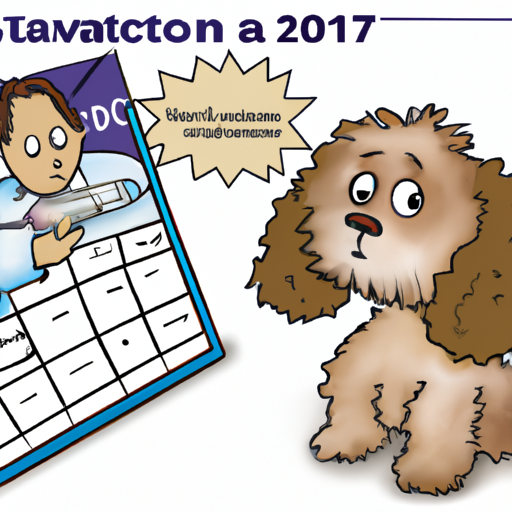The Importance of Vaccinations
As a caregiver, you’re always looking out for your four-legged friend. You’re the one who makes sure they’re fed, groomed, and loved. But there’s one more thing you need to do to ensure their wellbeing: make sure they’re vaccinated. When it comes to your dog’s health, vaccinations play a crucial role. They help equip your dog’s immune system to fight off infections and diseases. Without them, your furry friend is left vulnerable to a world of potential health issues.
Understanding the Vaccination Schedule
Now, you might be asking, “when exactly do dogs need their shots?” Well, it’s not a one-size-fits-all answer. Different vaccines are given at different stages of a dog’s life. Here’s a basic timeline to give you an idea:
- 6-8 weeks: Distemper, Parvovirus
- 10-12 weeks: DHPP (vaccines for distemper, adenovirus, parainfluenza, and parvovirus)
- 16-18 weeks: DHPP, rabies
- Every 1-2 years: DHPP
- Every 1-3 years: Rabies
Remember, this is just a general guideline. Your vet will provide a more specific schedule based on your dog’s breed, age, health condition, and lifestyle.
Factors That Influence the Vaccination Schedule
While the vaccination schedule mentioned above is a good starting point, several factors might affect when your dog needs their shots. Let’s delve into a few of them:
- Dog’s Age: Puppies require a series of vaccinations in the first year of their lives. Adult dogs, on the other hand, might need annual or biannual booster shots.
- Lifestyle: Dogs that spend a lot of time outdoors or socializing with other dogs might need additional vaccines.
- Travel Plans: If you’re planning to travel with your dog, they might need extra vaccinations depending on the destination.
- Local Regulations: Some areas have specific laws about certain vaccinations, like rabies.
Common Questions About Dog Vaccinations
Now, let’s take a moment to address some frequently asked questions about dog vaccinations:
- Are vaccines safe for my dog? Yes, vaccines are generally safe for dogs. They might experience mild side effects like soreness at the injection site or a slight fever, but serious side effects are rare.
- Can I skip a vaccination if my dog is strictly an indoor dog? No, even indoor dogs are at risk of various diseases. Some, like rabies, can be transmitted through bats or other pests that can get inside your home.
- What if my dog is pregnant? It’s best to consult with your vet. Some vaccines are safe for pregnant dogs, while others aren’t.
- Can my dog get vaccinated if they’re sick? Again, consult with your vet. If your dog is seriously ill, it might be best to wait until they’ve recovered before vaccinating them.
The Bottom Line
Vaccinating your dog is a crucial part of their healthcare. It’s the best way to protect them from numerous diseases and ensure they live a long, healthy life. As a caregiver, it’s part of your job to make sure they get the shots they need, when they need them. After all, a healthy dog is a happy dog, and there’s nothing more rewarding than seeing that wagging tail and those shining eyes full of love and gratitude.



